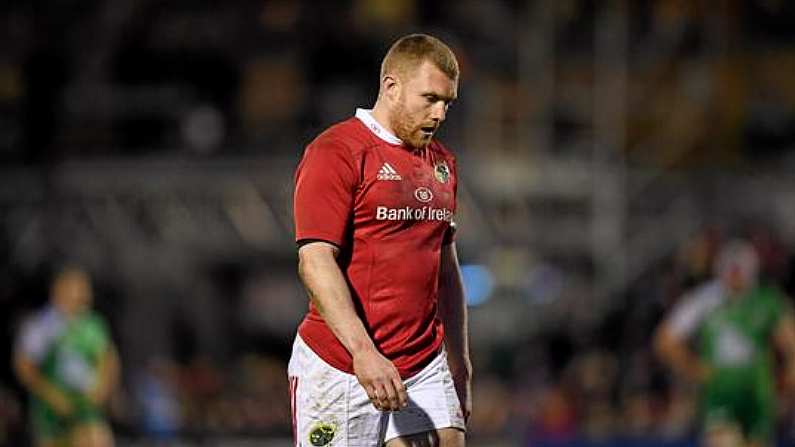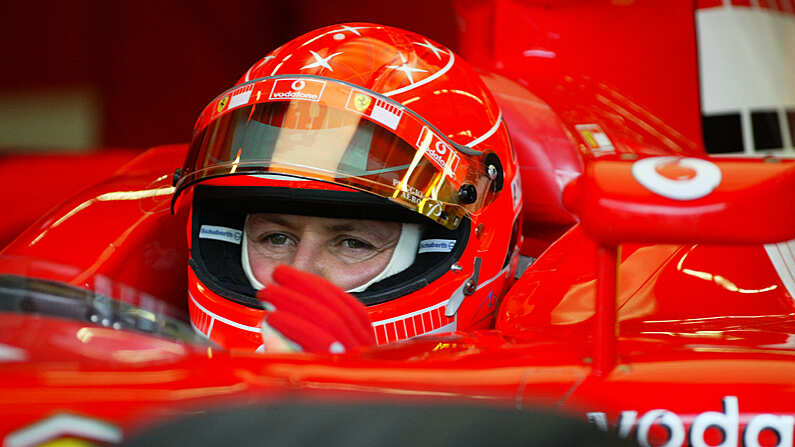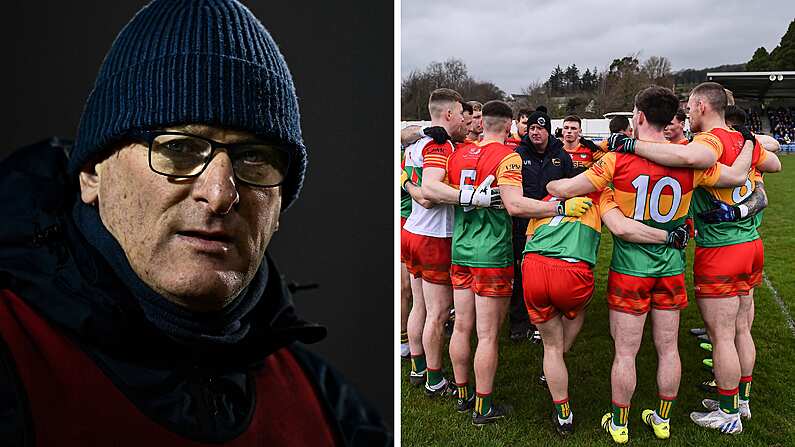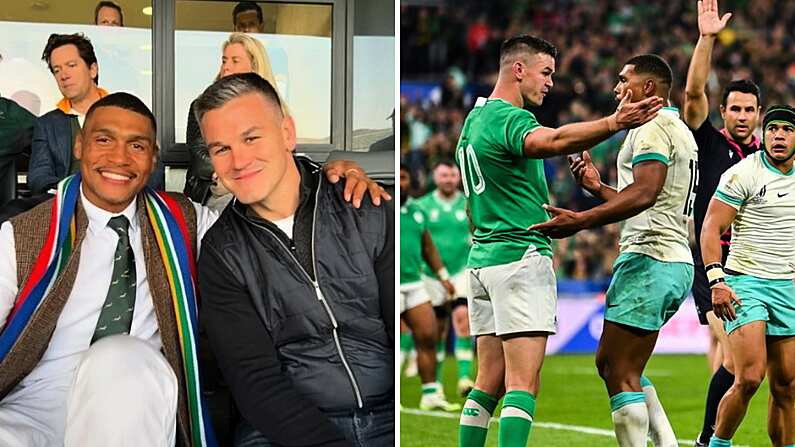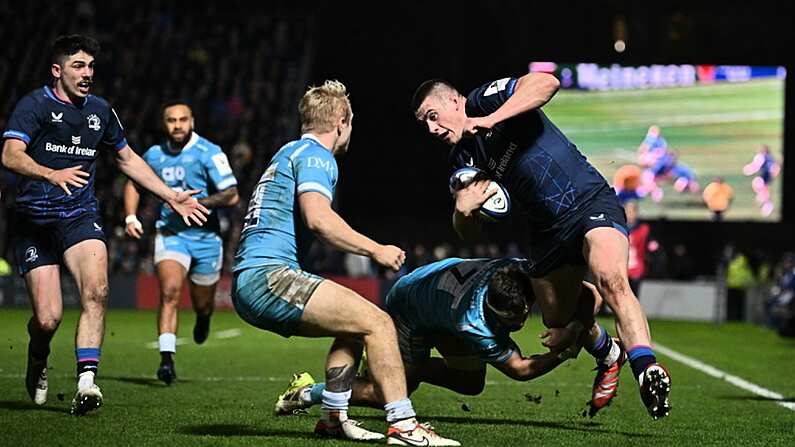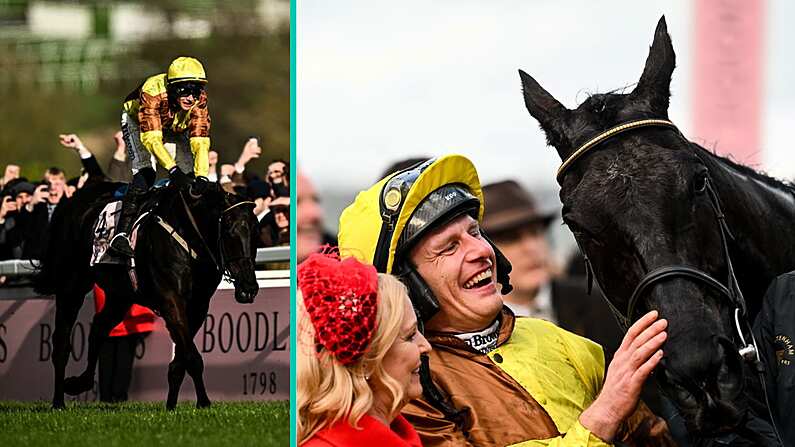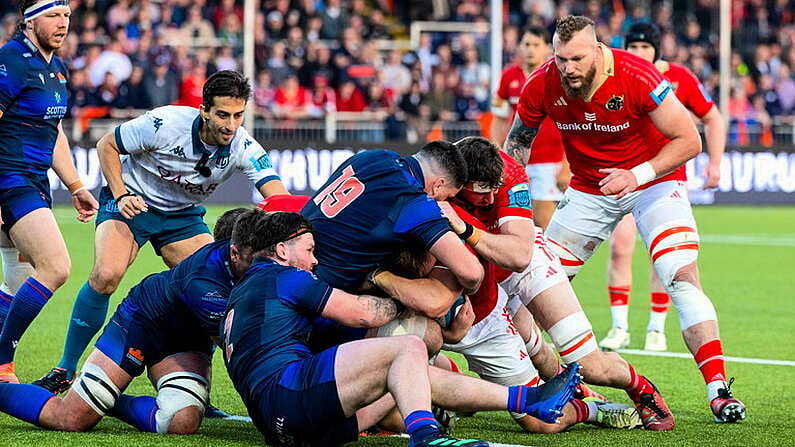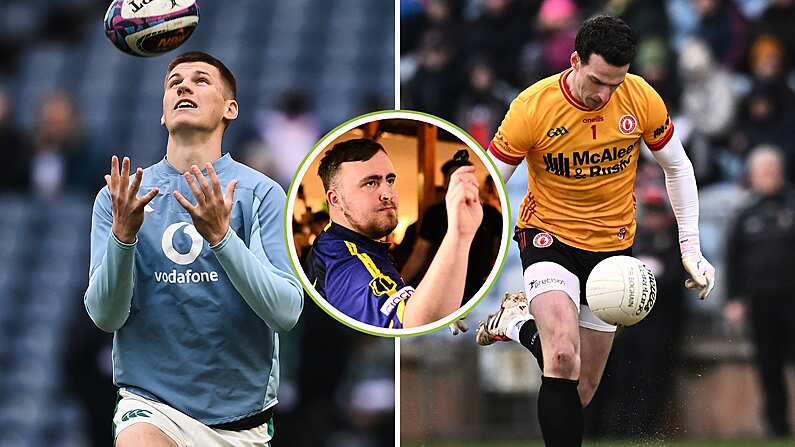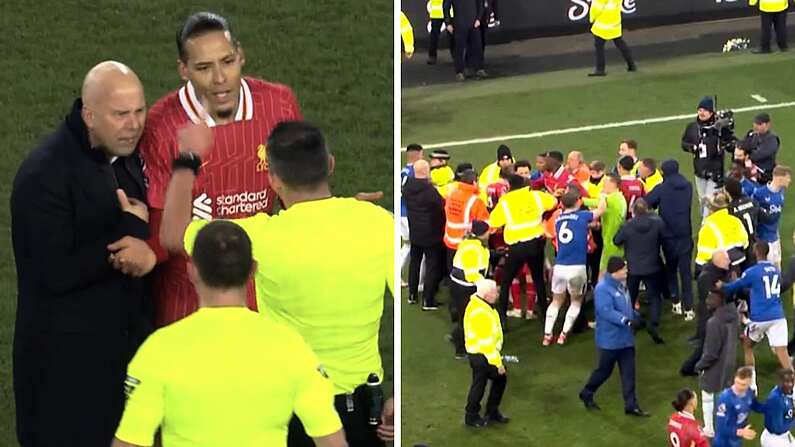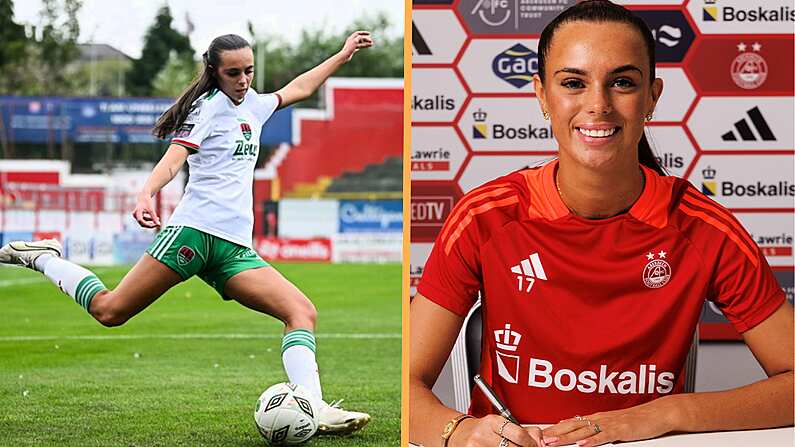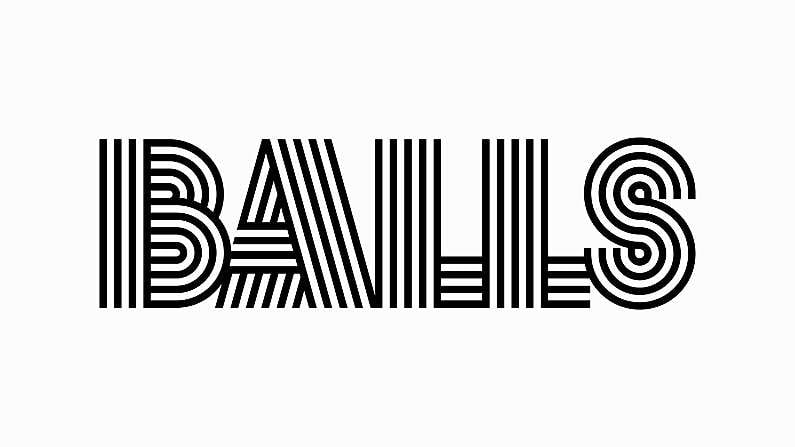If you were to try to pinpoint the instant the arc of the modern Munster mythology flew upwards, you could start by looking to a couple of moments from one match just over a decade ago.
Munster welcomed Sale Sharks for a do-or-die Heineken Cup pool encounter at Thomond Park. A win for the home side would put them through to the quarterfinals while an improbable bonus point win would guarantee a home quarterfinal.
Sale were riding high at the top of the English Premiership and had easily dispatched Munster in the opening pool game of the campaign. They had Jason Robinson scurrying from fullback and they had the crazed carrying of one Sebastian Chabal.
The setting was classic Muster fare: a miserable January evening in Limerick, a cocky English side coming to sack Fortress Thomond, a bloodthirsty crowd huddled in unkempt terraces.
Early in the first half, Ronan O’Gara hit a peach of a restart that landed squarely in the breadbasket of Chabal. The French international had been bulldozing through English packs up until that point that season but in one moment, he was welcomed to the controlled madness that Thomond could conjure. Chabal caught the ball and was met in an instant by a galloping Paul O’Connell. The second row was quickly joined by most of his pack and Chabal and Sale were driven back at a rate of knots. It was a visceral representation of the pain Munster could inflict upon even the loftiest of reputations.
During a break in that first half, the Munster faithful – much like Augusta patrons, Munster fans were never just fans, they were cloaked in religious imagery – broke out in a rousing rendition of 'the Fields of Athenry'. Ryle Nugent commented that sometimes ‘you just had to listen’ while Sky Sports’ Stuart Barnes described Thomond ‘as fanatical a rugby ground as anywhere in Britain and Ireland’ as they too kept a silence for The Fields. The Sale players seemed transfixed by the whole thing, standing silently and taking it in.
https://www.youtube.com/watch?v=IJMf6XBS4H8
As a piece of TV, it was compelling. As a piece of brand-building, it was invaluable.
Munster would go on to hammer Sale and get that bonus point win through David Wallace’s last gasp try. Miles Harrison described it as ‘beyond heroic, the stuff of legend’ in the Sky gantry. Many will point to the Miracle of Gloucester and a gameplan in a taxi and O’Gara’s ignorance of his final conversion but that particular miracle against Sale – like the two previously lost Heineken finals, served as staging posts for the mythology, necessary stops on the way to the Holy Grail. The Sale game marked the point that a wider audience bought into the Munster mystique.
That season was the last time RTE would broadcast the European Cup and it marked the beginning of an unprecedented era of dominance for Irish sides in Europe. In the weeks that followed, Munster would edge past Perpignan in the quarterfinal, would destroy Leinster in a semifinal that truly planted the flag for feverish Irish interest in rugby. The final had Stringer’s scrum hoodwink and live pictures from a delirious Limerick as the Holy Grail was lifted.
As members of the golden generation dropped away, the mythology seemed to provide strength when required. Remember the '41 phase game' in 2011? The win away to Quins and the heroic defeat away to Clermont in O'Gara's last game in 2013 were built on a 'return to the Munster way'. Amazing as it may seem, Munster contested a European Cup semifinal only two seasons ago. This morning, they wake up seventh in the Pro12, and even worse, last in Ireland.
Paul O’Connell’s retirement broke the final chord with that team and in the wreckage of their humiliation at the hands of Connacht on Saturday night, we have to ask is the connection between the wider Munster parish and its team irreparably broken too. The mythology of pride in the jersey, of the community and parish, of the dog in the pack and chip on the shoulder has been replaced with indifference and near apathy. It arguably started when Rob Penney turned away from the Munster way and tried to introduce a wider game but this Munster side, especially in the absence of Peter O’Mahony, doesn’t appear to engineer warmth or slavish devotion independent from results, a game plan or style of play.
Munster are caught in a tailwind of needing raw results to put arses on seats yet also needing to explain away the fact that their myth was just built on a once in a generation bunch of players. It wasn’t the community. It wasn’t the fact it was one big GAA team. It wasn’t the 16th man. It was the fact that for a decade, the best second row in the world was a Limerick man. It was the fact that the canniest operator the European Cup has ever seen (and will ever see) came from Cork. It was the fact that of the eight Munster forwards that started the 2008 Heineken Cup final, six were either called up to or played a part in the 2009 Lions Tour.
Success breeds bandwagons and while those who belted out 'Stand Up and Fight' at that Sale game in 2006 or Gloucester before it will belt it out come what may. Those terraces are shadowed by stands built by success and maintained by mythology. They were built by games like Sale and moments like the plundering of Chabal. But they cannot be filled by indifference.
No one better understands the madness that Thomond could conjure like Anthony Foley. Yet his Munster side are utterly devoid of that madness. They are incapable of conjuring those moments that feed into Munster’s primal identity. They seem caught between game plans and unable to revert to what Munster should be. Foley’s legendary status within the club seems to be sparing him somewhat from criticism. You have to wonder if Rob Penney would be afforded the same luxury.
There is a whiff of early noughties Munster off of their conquerors on Saturday night, who are nicely building their own mystique. Connacht have had genuine cause for a chip on the shoulder for just about their whole existence and the thrilling manner of their play and even the odd brave defeat in European competition is moulding a cord between them and more casual fans out west. Their identity is set while Munster are trying to maintain an unrealistic image given the drop in standard in player personnel.
Struggling in the shadow of a golden generation is the oldest story in sport but Munster not only have to contend with that, they have to contend with gross French and English wealth and the fact that they now occupy the fourth rung on Ireland’s rugby ladder.
The real fear is, in ten years, Saturday night might come to represent the night that depressing reality finally replaced blind belief for the brave and the faithful.

